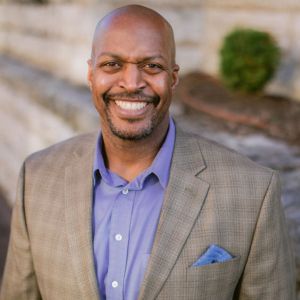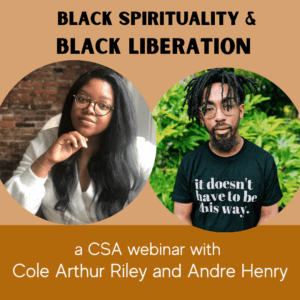 Growing up in a city like New York, you get used to a hustle. You might even end up doing a little hustling yourself. The hustler offers someone something of value, or something another person may desire. If you were to obtain this item through the prescribed means, it would cost you much more than what the hustler is selling it for. You might not even be able to afford it.
Growing up in a city like New York, you get used to a hustle. You might even end up doing a little hustling yourself. The hustler offers someone something of value, or something another person may desire. If you were to obtain this item through the prescribed means, it would cost you much more than what the hustler is selling it for. You might not even be able to afford it.
Typically, the first question you ask yourself isn’t about the morality of the transaction. Should I buy this even though I don’t know how it was obtained? No. Our first concern is around the issue of trust. Can I trust the hustler? Am I going to be the victim of a hustle?
It’s one thing to deal in material matters. It’s quite another matter to hold on to hope in the face of circumstances that communicate to us that hope might be a hustle.
The particular hope I’m referring to is the Christian hope of experiencing an embodied life of being knit together in love across lines of deep division and difference. If you ask people what they hope for, you might hear answers like peace, justice, health, and happiness. But God makes a distinct promise in the Bible that seems out of reach in our current cultural moment. This promise is the reunion of humanity under the lordship of Jesus Christ. It is the promise of setting all things right. It is the promise that he will renew the whole world such that nothing and no one will ever be wrong again.
With its deep divides in the American church, our current culture of contempt makes it difficult to hold on to hope. What we are called to grasp is that hope is woven into the fabric of the Christian faith. Not hope as an idea or a wish but hope as a confident trust in God and his promises. This hope drives us to a disposition toward others that begins with respect.
In January 2020, our Institute for Cross-Cultural Mission held a Clergy Story Table event in Washington, DC. I facilitated our conversation on the issue of racial justice and the church. We brought together a local diverse group of 10 pastors for this purpose. They were ethnically diverse (African American, Korean American, Venezuelan, and Anglo American), and they were theologically diverse (Baptist, Mennonite, Methodist, and Presbyterian).
Our conversation was honest and sometimes raw. One sentiment shared, particularly by two of the African American pastors, was that they believed the visions of Revelation 5:9‑10 and 7:9‑12 will come to pass one day, but they do not expect to experience the reality of it in their local churches today.
“I don’t trust that white people are serious about reconciliation and justice issues. They’re not willing to pursue it unless they are in control.”
The temptation in this current moment, particularly for ethnic minorities, is to stay in and focus on their ethnic ecclesial spaces. A pastor friend recently told me, “I just feel like going back into all-Black everything.” I understand this frustration personally. The focus on race, justice, and even reconciliation in Christian circles brings with it accusations of bowing to Critical Race Theory, Marxist ideology, or “Wokeness.” The polarization is deep.
The pastors who told me they do not expect to experience the kind of reunion of humanity across these lines of deep difference are expressing a lack of hope. Holding on to this kind of aspiration can feel like an exercise in futility. It can feel like a hustle. And who wants to be on the wrong end of a hustle?
But God is not a hustler. And the hope he calls us to cannot be built on naive expectations that people will start seeing things the way we do. Our longing cannot be built on the arrogant assumption that we are completely right in the positions we take. It cannot even be built on an expectation of steady improvement. If the arc of the moral universe does indeed bend toward justice, that arc will never be smooth and straight from a human perspective. It will have twists and turns, ups and downs, starts and stops.
Our hope, if it is to be enduring, must be rooted in the glory of Jesus Christ.
This kind of hope is enabling for how we live and is embodied in our daily decisions. It’s about an enduring hope that’s able to carry us through the aspects of life that make it seem as though we are being hustled.
Are you experiencing hope fatigue?
Are you wearied by our culture of contempt? Are you exhausted by being in a continual state of outrage? Explore Christian hope as the ultimate antidote for the fatigue, weariness, and exhaustion engendered by our current climate. This hope is not a hustle. Those who have hope of eternal life strive for godliness in this life, individual and corporate, for the benefit and blessing of others. Hope is the necessary means of our endurance, bearing witness to Christ in a divisive world.
 Adapted from the forthcoming Hope Ain’t a Hustle by Irwyn Ince. ©2024 by Irwyn L. Ince, Jr. Used by permission of InterVarsity Press.
Adapted from the forthcoming Hope Ain’t a Hustle by Irwyn Ince. ©2024 by Irwyn L. Ince, Jr. Used by permission of InterVarsity Press.
Irwyn L. Ince Jr. is the coordinator of Mission to North America, part of the Presbyterian Church in America (PCA). Formerly, he was a pastor at Grace DC Presbyterian Church. He is also the author of The Beautiful Community and the forthcoming Hope Ain’t a Hustle.


